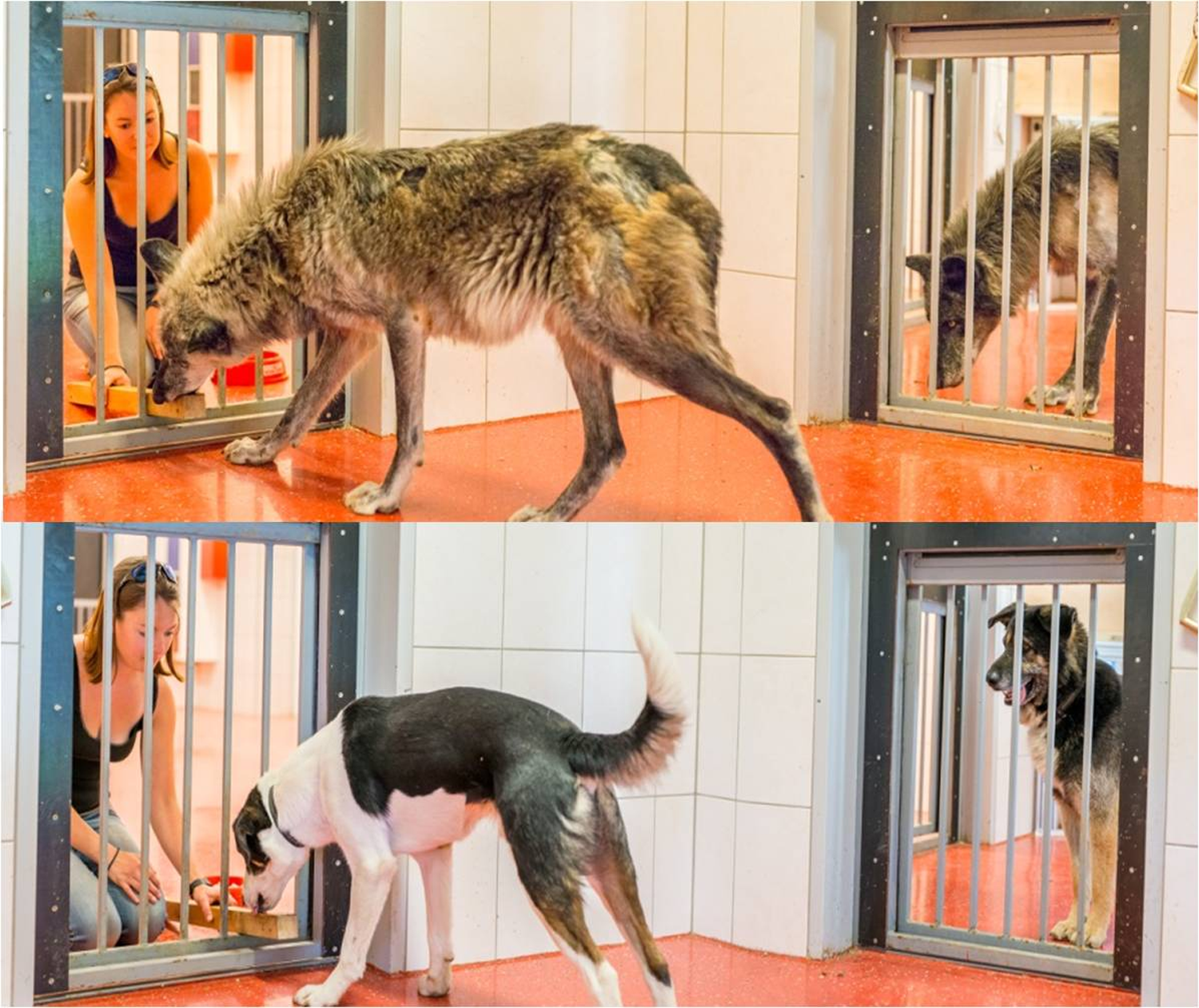Scientists Gave Wolves Touchscreens to See If They're Friendlier Than Dogs
Wolves are more willing to help each other than dogs, according to an experiment that involved canines activating touchscreens with their noses.
Led by Rachel Dale, an animal behavior researcher at the Wolf Science Center in Vienna, Austria, the study published Wednesday in the journal PloS ONe lends weight to the idea that prosociality in dogs is primarily inherited from their wild ancestors.
While some researchers suggest that generosity in dogs is a result of their wolf ancestry, others have proposed that cooperative social skills were bred into dogs by humans over thousands of years.
To test out these different hypotheses, Dale's team designed an experiment to see whether dogs or wolves would show more charitable behavior.
The researchers trained nine wolves and six dogs to interact with a "giving" symbol on a touchscreen. The room used by this "donor," meaning the wolf or dog operating the touchscreen, was adjacent to another space occupied by the "partner," a wolf or dog that was either a pack mate or an unfamiliar canine.
 The experiment with wolves (top) and dogs (bottom). Image Credit: Rachel Dale, Wolf Science Center
The experiment with wolves (top) and dogs (bottom). Image Credit: Rachel Dale, Wolf Science CenterThe donors were able to see their partners through a barred door and were tasked with deciding whether to push the giving symbol to dispense a treat.
Dale's team also conducted control tests in which the partner canine was put in a nearby enclosure that did not provide access to the food.
The wolf donors pushed the giving symbol far more frequently when a partner was in the next room, compared to the control test where the partner could not access the treat. The dog donors, meanwhile, were less generous to their partners in the adjacent room.
Dale said that dogs may have lost some of their cooperative skills during the domestication process. Though dogs are bred to be friendly, they are reliant on humans for food and territory, while wolves are dependent on their pack for survival. In other words, the stakes of generous behavior between pack mates is simply higher for wolves than dogs.
To that point, the experiment also revealed that wolves showed a strong preference for rewarding their pack mates compared to unfamiliar wolves, while dogs did not differentiate between friends and strangers as much.
Three wolves named Aragorn, Wamblee, and Tala were particularly generous, and rewarded pack mates even if they were not genetic relatives. "The social relationship between the two animals is the best explanation for why some wolves are more prosocial than others," Dale told Motherboard in an email. It could also be that some individuals are simply friendlier, but that has not been determined yet in tests, Dale added.
Dale and her colleagues hope to refine the results further in future research. "We are interested in the relationship between prosocial behaviour, cooperation, and cognition and so we have been working on a big project to try and better understand how these things are linked," she said.
Get six of our favorite Motherboard stories every dayby signing up for our newsletter.